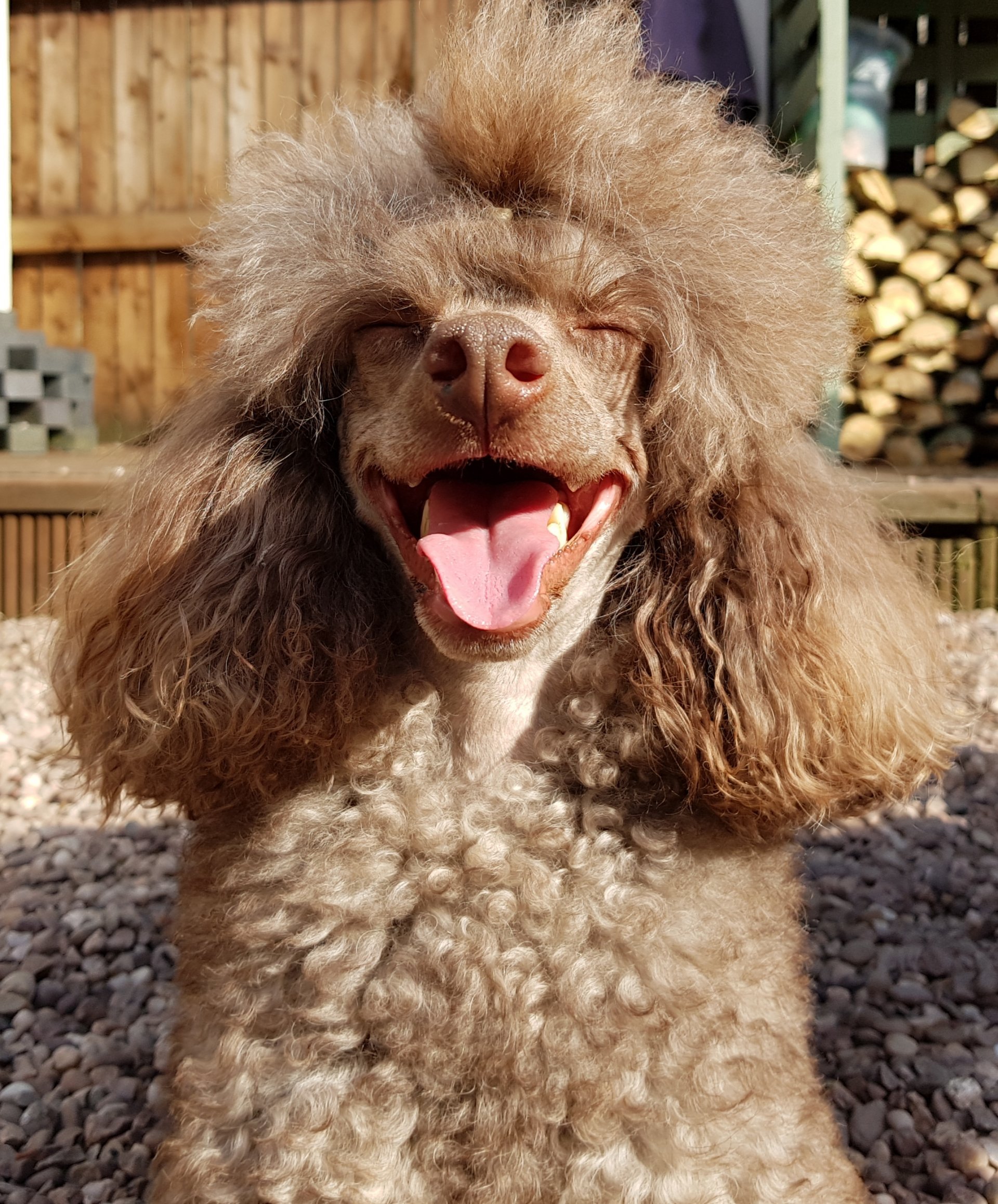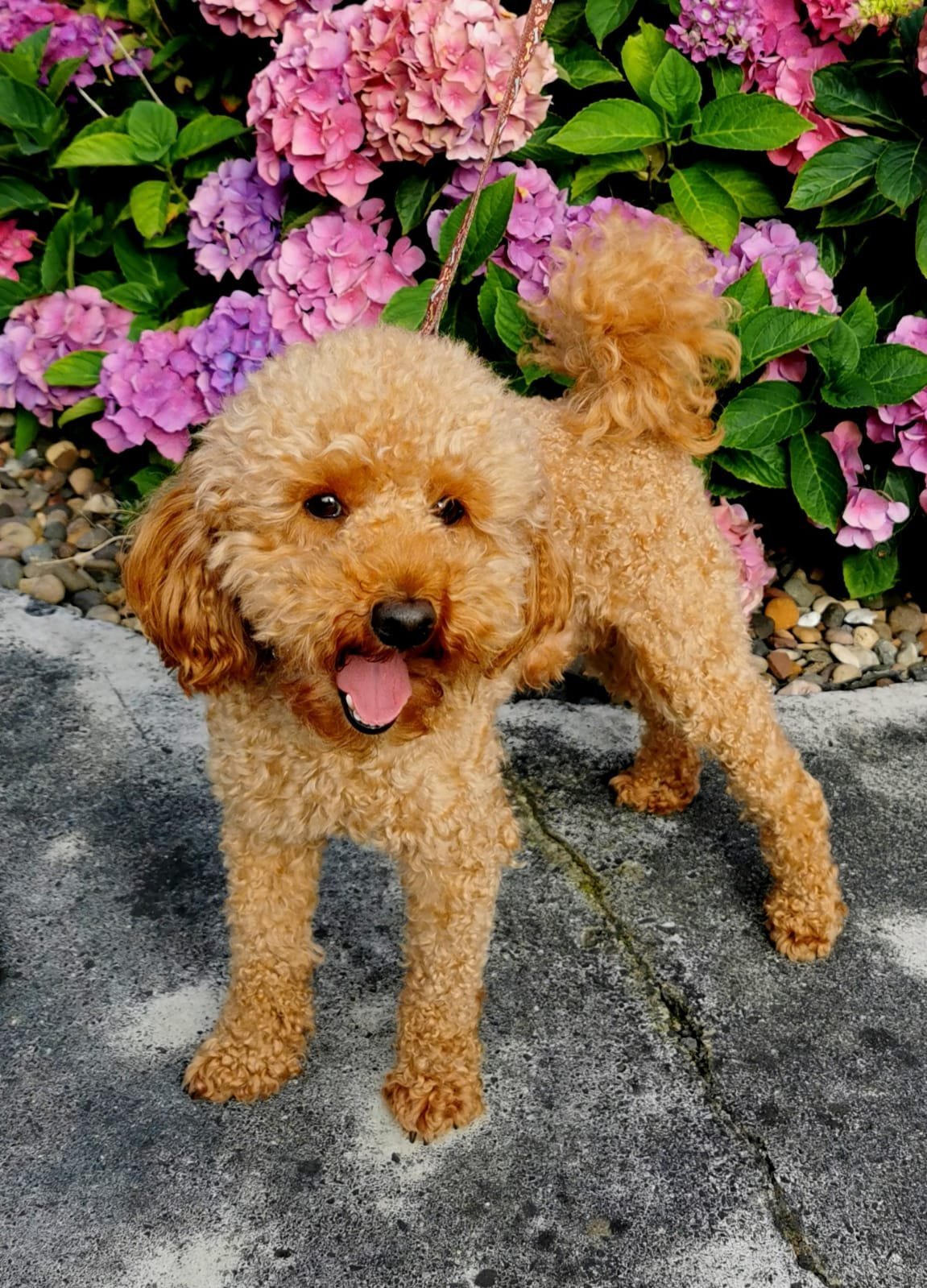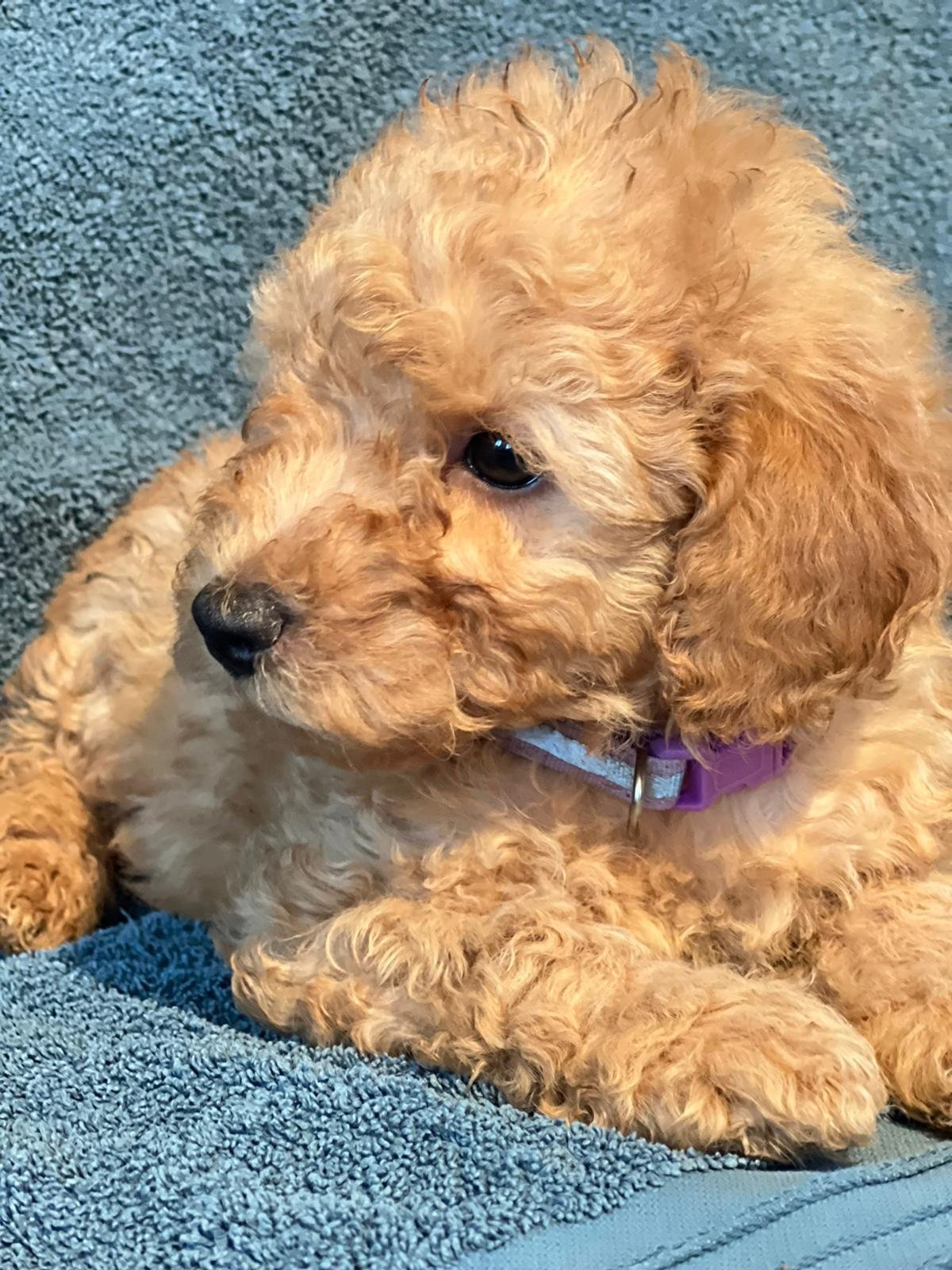Intelligent, fun loving and a great hypoallergenic dog option.
 Poodles can tick a lot of boxes for people prospective dog owners. To start, there are 3 main variations which all carry similar breed characteristics but differ in size.
Poodles can tick a lot of boxes for people prospective dog owners. To start, there are 3 main variations which all carry similar breed characteristics but differ in size.
The Standard Poodle is classified as a large dog needing a large house and medium sized garden. A Toy Poodle is a small breed of dog which is suitable for flat or apartment living. And a Miniature Poodle is somewhere in between.
With a variation of Poodle available for nearly all living arrangements, it’s easy to see why they this breed is so well loved.
What does a Poodle look like?
Although there are variations of sizing, they all share other breed characteristics and standards. The British Kennel Club recognises 8 standard breed colours, including:
- Apricot
- Blue
- Silver
- and Red.
With a further 11 non-standard breed colours (like Particolour and Sable). Their Poodle coat is classified as being tight and curly and does not routinely shed. This is why they’re considered as a option for those with dog allergies.
Check out our Guide on Hypoallergenic Dogs (from small breeds to larger dogs) here.
This is one of the reasons why they are very commonly crossed breeds (for example Cockapoos and Cavapoos). Another reason is their intelligence and ease of training.
See other Poodle Cross puppies available for sale.
Did you know?
Their coats are actually considered as hair rather than fur. This is because unlike dog fur which will reach a certain length and then shed, a Poodle’s hair will continue growing. Their hair (like a human) is often affected by hormonal changes. A Poodle who has recently had puppies, may even experience hair loss/hair thinning after having puppies.
Grooming a Poodle
Although their hair doesn’t tend to shed like other dog breeds, they do need regular grooming and brushing. Without this regular grooming or close clip their hair can matt and become uncomfortable for them.
Did you know?
A Poodle is called a ‘Caniches’ in France which translates to ‘duck dog’. The German name is much closer to the English ‘Poodle’ where it’s called a ‘Pudel’.
It’s recommended that you either look to have a close clip or brush and groom their hair nearly daily. This is why you’ll often see the traditional cut in competition shows with extravagant hair toward the front and skin-tight clippings on the hind quarters.
What is a Poodle’s temperament?
They are an incredibly intelligent and fun-loving dog breed which have plenty of energy levels. Although they are often described as an energetic dog, they are prone to gaining weight, so it’s recommended to not overindulge with treats.
As they are fairly easy to train – they’re a great option for inexperienced or unconfident dog owners. We have covered some tips on positive puppy training – it’s a great place to start for new dog owners to start.
This is why the Poodle breed has had a long career as a working dog. Some of their many jobs include being guide dogs, assistance dogs for those with other physical disabilities, therapy dogs and even truffle hunters because of their exceptional sense of smell.
Did you know?
Although commonly associated with France – the Poodle is actually believed to have a German origin.
 They have a huge social drive and will happily bask in their human family’s attention. Without getting enough attention they can develop bad habits if ignored for too long (like barking). It’s recommended that dogs with a social drive are gradually introduced to being left alone. Read more tips for dealing with dog separation anxiety here.
They have a huge social drive and will happily bask in their human family’s attention. Without getting enough attention they can develop bad habits if ignored for too long (like barking). It’s recommended that dogs with a social drive are gradually introduced to being left alone. Read more tips for dealing with dog separation anxiety here.
A Poodle will often be extremely protective of their humans because they build such a deep bond with them. It’s even been known to extend to other household pets like cats!
This loving and intelligent breed makes a great family pet.
And if you weren’t already sold on their ability to be great house guests then they also have a low tendency to drool or snore.
See Toy Poodle puppies for sale.
See Miniature Poodle dogs available near you.
See Standard Poodles for sale.
To sell your Poodle puppies click here.